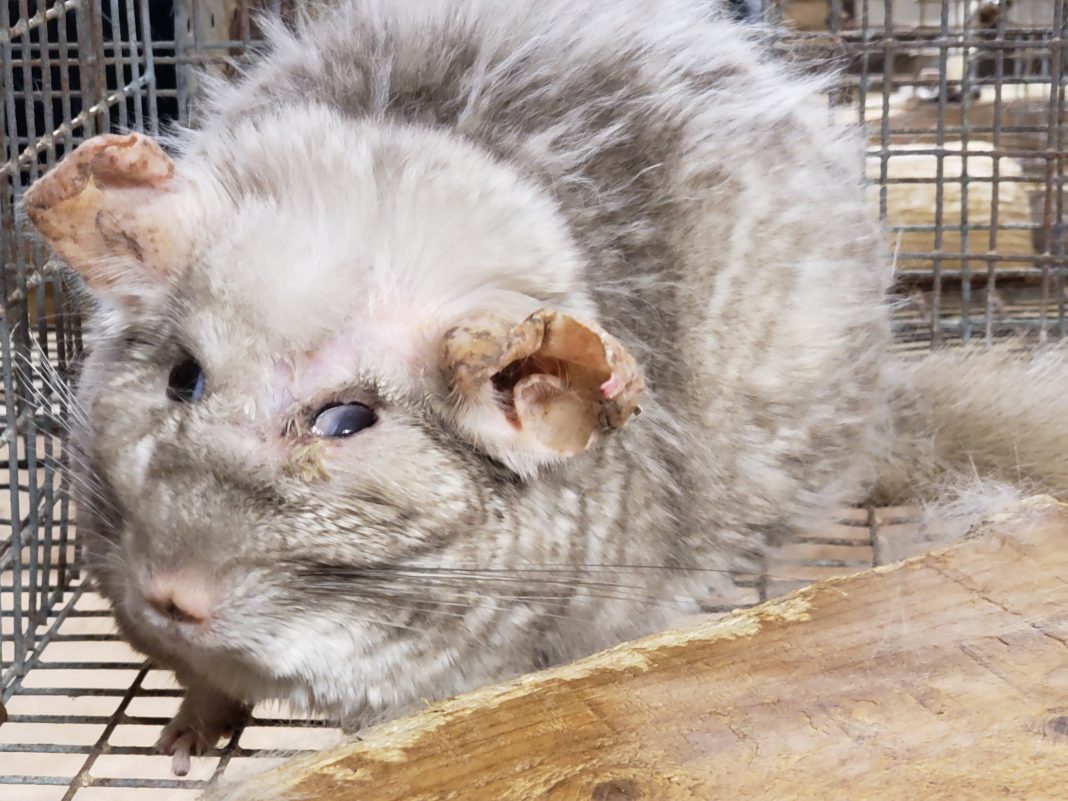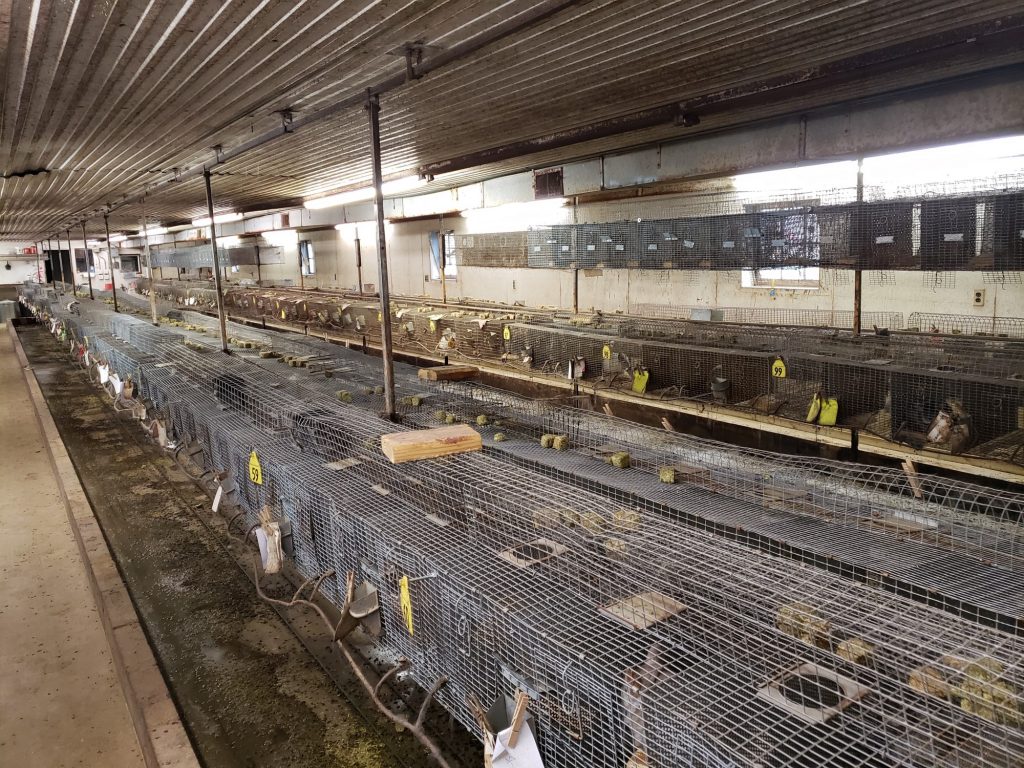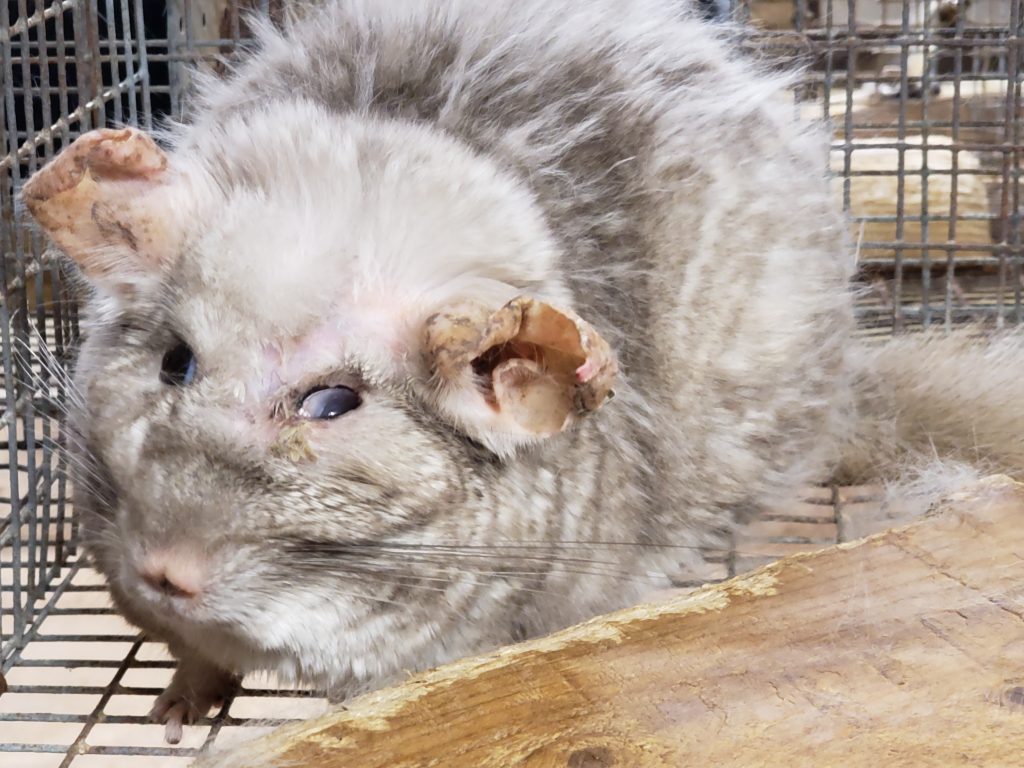
The People for the Ethical Treatment of Animals sent a letter to University of Miami President Julio Frenk on Feb. 18, 2021, urging him to stop the university’s use of chinchillas for medical research. PETA representatives say that a 2020-21 undercover investigation discovered that Moulton Chinchilla Ranch, UM’s former chinchilla supplier, has been abusing animals.
“Will you please immediately reconsider your relationship with MCR and stop obtaining chinchillas altogether?” stated PETA’s letter sent to the University of Miami.
Photos and documents which PETA says were taken by an undercover worker show animals at the ranch in Chatfield, Minnesota, with serious conditions in need of veterinary care. Some conditions include swollen, pus-filled eyes, mutilated feet with exposed bones, overgrown teeth and exposed mammary tissue. Chinchillas are shown cramped inside of unkempt cages.

UM last bought chinchillas from the ranch in 2014, in order to conduct a hearing experiment. Twenty two chinchillas were injected with various ear infections and then were tested with baby shampoo as a possible cure to the infection.
Alka Chandna, vice president of Laboratory Investigations Cases at PETA, works with whistleblowers at facilities where animals are believed to be abused.
Chadna contacts clients of facilities that are under investigation for abusing animals. She sent the email to President Frenk in mid February, on behalf of PETA.
“I work with them to try to put pressure on the institution to either better their treatment or stop using animals all together,” Chandna said.“When we carry out undercover investigations inside facilities where animals are used and abused, I am responsible for bringing the complaints to the federal authorities that are supposed to ensure adherence to federal laws.”
Chandna explained the process PETA took to investigate the Moulton Chinchilla Ranch.
“Our investigator took a job at Moulton Chinchilla Ranch. Our people will take employment at these facilities, and it’s all above board,” she said. “They give their name. All of it is very truthful, they just don’t say they work for PETA.”
The investigator’s duties included informing their supervisor about any concerns for the animals’ welfare or lack of veterinary care. He worked there for three and a half months.
“The animals had gaping holes in their bodies with their eyes protruding out, and ears torn off,” Chandna said. “All manners of pain and distress and veterinary care were not given to these animals.”

In the process, the investigator also collected evidence of the ranch’s violation of animals’ rights.
“Moulton has been on the U.S. Department of Agriculture’s radar as a bad player for years now,” Chandna said. “You can go back and see that Moulton has violated the Animal Welfare Act, which is the most minimum standard.”
Dan Moulton, owner of the Moulton Chinchilla Ranch, claims that PETA’s accusations are not accurate. Moulton says that he has a veterinarian that conducts frequent check ups on his chinchillas.
“If there was a veterinary issue, my vet was only a mile and a half away from my home,” said Moulton.
PETA, however, states that the ranch did not receive more than one veterinary visit during the time PETA’s undercover worker worked at the ranch.
“Our investigator worked at the ranch from the first week of October in 2020 until January 20th, 2021, approximately three and a half months.
“In that time period, Moulton’s veterinarian came to the facility once,” said Paden, an associate director in PETA’s Cruelty Investigations Department.
Paden states that the veterinarian came to the facility not to tend to any animals, but rather to sign paperwork that is required in order for the ranch to ship animals.
“He was shipping animals to a pet distributor who’s just outside of Fort Myers. In order to import those animals into the state of Florida, Florida requires a certificate showing that a veterinarian has examined those animals and declares them free of disease,” said Paden.
“That was the only time in three and a half months that he saw a veterinarian come into the facility, as far as we know,” said Paden.
Moulton says that any allegations that his chinchillas were deprived of water are false.
“PETA claims that I had left some of my animals without water for five days. I don’t know where that happens because I have a well out on my farm. It is connected to my house and to the Chinchilla barn.” said Moulton.
“If we were without water, we would know it in a heartbeat,” continued Moulton.
PETA representatives say that while Moulton’s statement is correct, he omitted crucial information.
“Moulton had obtained approximately 40 chinchillas from another chinchilla breeder in Nebraska. He had brought those animals back to his ranch in small transport cages. There was no water source in those cages for those animals,” Paden said. “All that he said is true, but what he omits is that he left those animals unable to access the water from his ranch for five days.”
PETA’s intervention has caused Moulton to lose multiple clients. Moulton states that PETA has tried to contact his family members and released negative advertisements against him and his ranch.
“These comments are unreal,” continued Moulton. “I have 1,000 animals. We purposefully breed these animals so that they aren’t put under stress.”
PETA has to independently verify who the ranch’s customers are by using sources like Google Scholar and other databases. It was in this research that they found the University of Miami was buying chinchillas from the ranch for a hearing experiment.
“Experimenters will induce painful ear infections on chinchillas by injecting influenza into the ear tissue. That basically causes the problems with hearing and so on, and then they test different remedies and possible treatments,” said Chandna.
Frenk has not directly responded to PETA or their investigation regarding the ranch.
PETA requested an interview with the University of Miami but the university declined. UM instead responded to PETA that 2014 was the last time the university purchased chinchillas from Moulton Ranch. Dan Moulton confirmed that 2014 was the last time the University of Miami bought chinchillas from his ranch.
Although the university stopped purchasing from the ranch multiple years ago, some students are still disappointed about the university’s partnership with the ranch.
“Sadly, I’m not surprised that UM is doing something that is unethical, after certain events related to Covid,” said Allyson Sabatelli, a pre-veterinary junior majoring in marine biology and ecology. Sabatelli is also President of the University of Miami Pre-Veterinary Society.
“When it comes to lab animal use, I think UM is responsible for doing research on the ethics of these places themselves, especially since the money being used is coming directly from students and donors,” she continued.
Sabatelli, however, admits that PETA’s views are often extreme.
“While many times they’re based on justice, it’s sometimes unrealistic or too far in the other direction. Maybe that’s why UM has been blocking out those kinds of outcry thus far,” Sabatelli said. “But this is something that very clearly needs to be dealt with and shouldn’t be going on.”
Sabatelli says she feels UM should respond to these allegations with action.
“I don’t think UM specifically owes PETA a response, but they definitely owe an action for the fact that this has been called out,” Sabatelli said.





